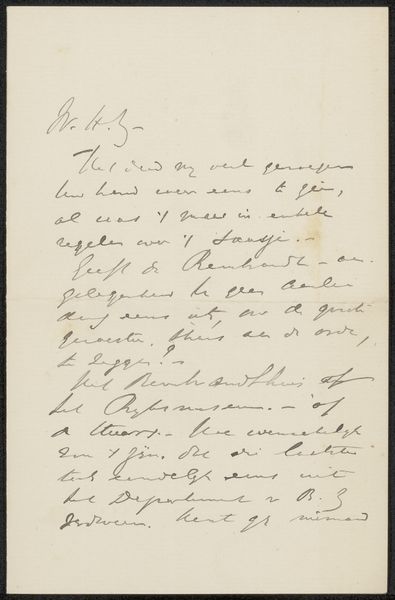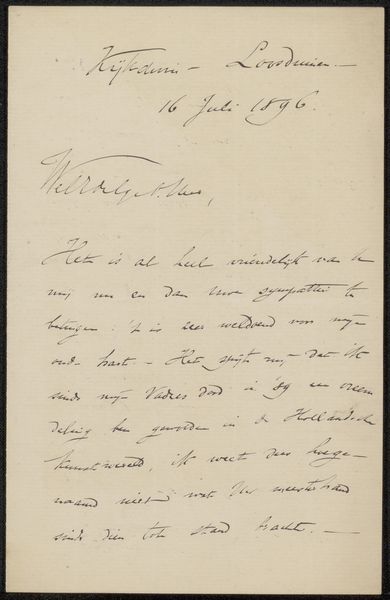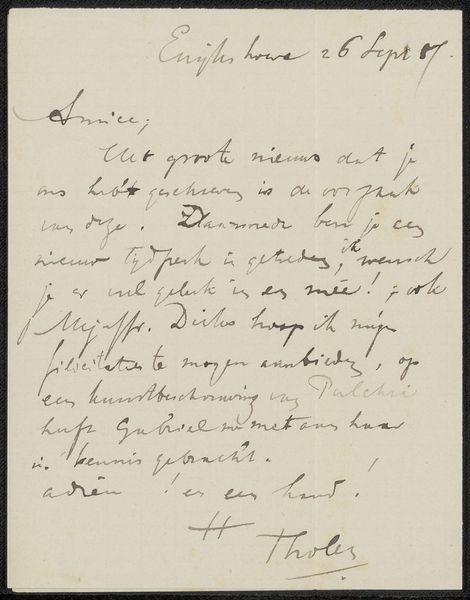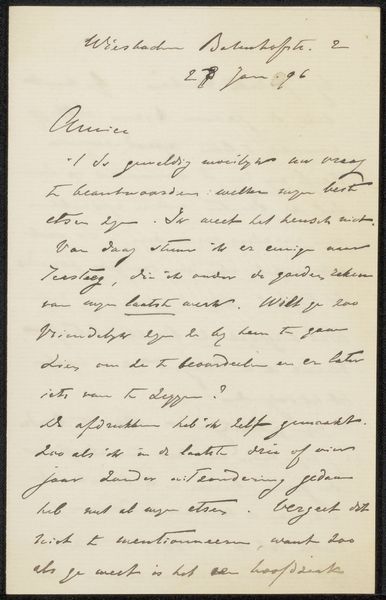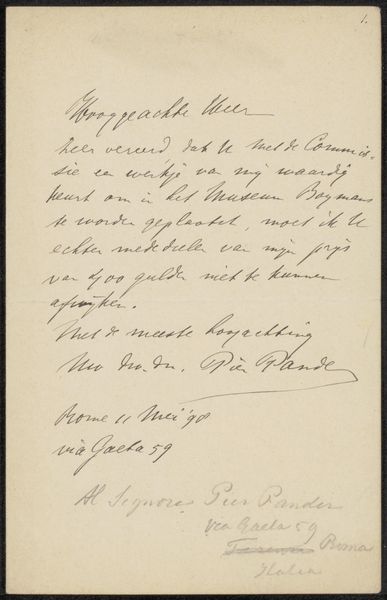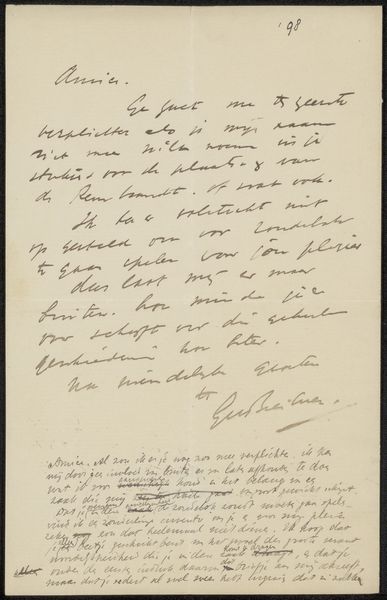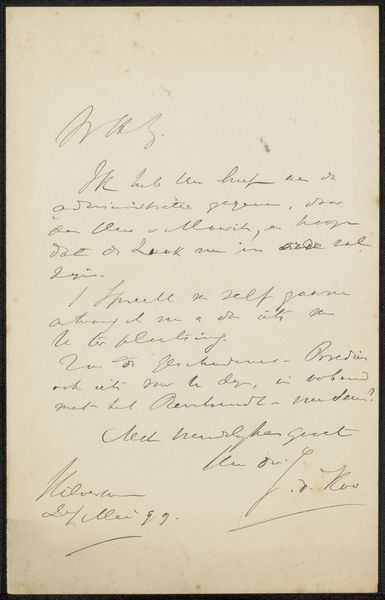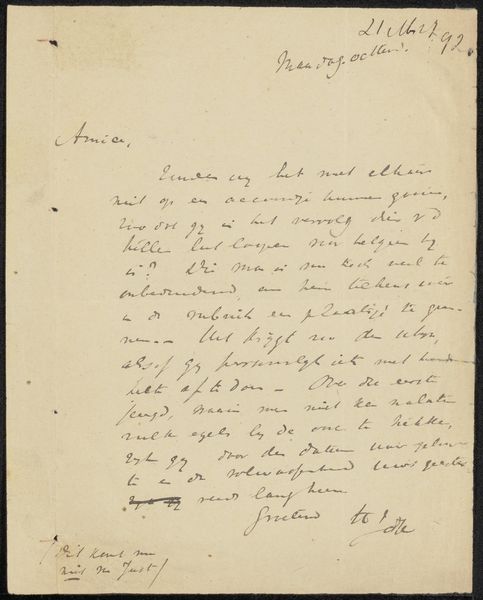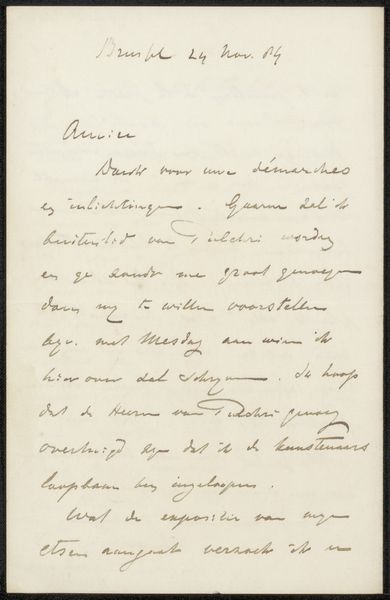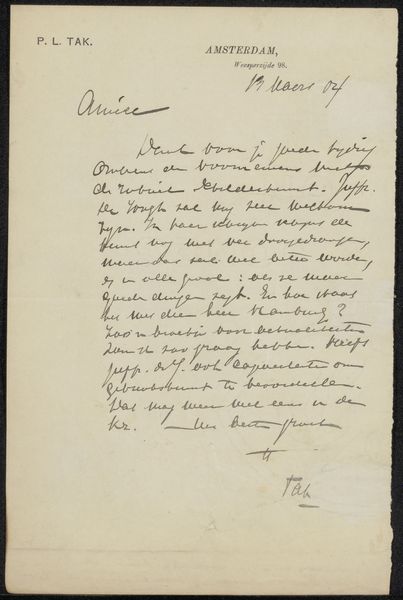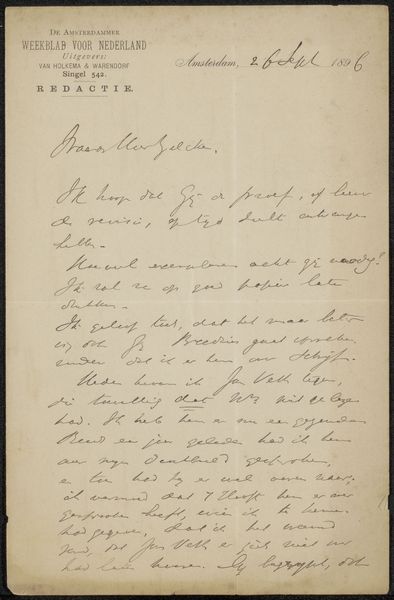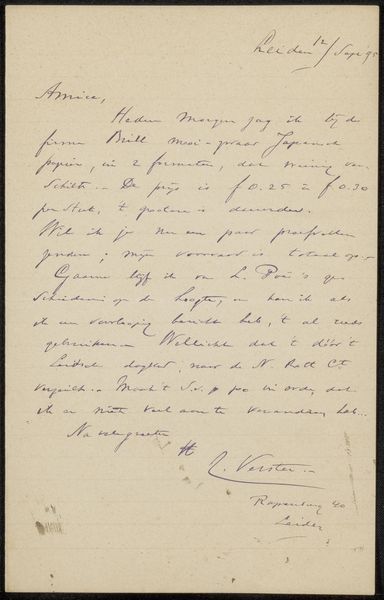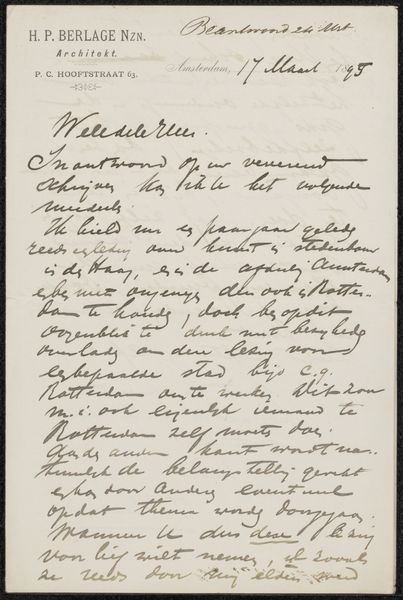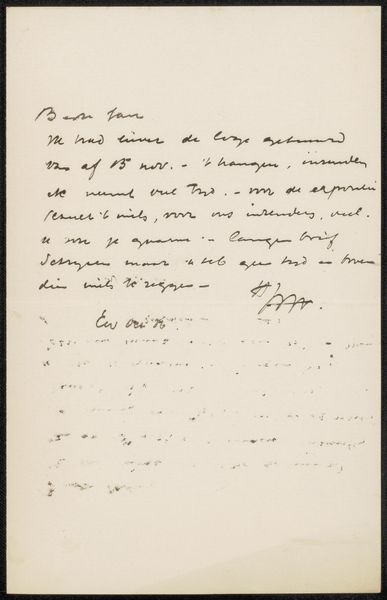
drawing, paper, ink, pen
#
drawing
#
aged paper
#
ink paper printed
#
old engraving style
#
sketch book
#
paper
#
personal sketchbook
#
ink
#
pen-ink sketch
#
ink colored
#
pen work
#
sketchbook drawing
#
pen
#
sketchbook art
Copyright: Rijks Museum: Open Domain
Curator: Here we have "Brief aan Philip Zilcken" by Gerlof van Vloten, likely drafted between 1876 and 1903. It’s rendered with pen and ink on paper. A personal correspondence, a peek into the artist's world. Editor: It’s deceptively simple at first glance, isn’t it? Aged, delicate. There's an intimacy suggested by the handwriting itself – you sense the writer's hand, the physical act of creating this message. Curator: Indeed. These sketches and notes, seemingly ephemeral, offer a glimpse into Van Vloten’s social sphere and his intellectual engagement. Letters like this played a crucial role in disseminating ideas and building artistic networks during this period. It embodies the art world as a living, breathing organism. Editor: It's interesting to consider that the letter itself becomes a document. Van Vloten carefully crafted a message to participate in larger social and artistic processes. The choice of the paper, the quality of the ink, even the care taken with penmanship—everything serves to carry and augment the message's power. What can you say about the politics surrounding something as simple as penmanship? Curator: Well, we can’t ignore class here; literacy and elegant handwriting signified education and social standing. A sloppy, rushed letter might betray a lack of consideration for the recipient or, more overtly, reflect the writer's lower status within the social hierarchy. The letter becomes a tool of diplomacy. Editor: Absolutely, and thinking of access... Consider who would even have the time and resources to dedicate to something so "simple." These works aren't necessarily overtly political, yet the access and the cultural capital it embodies... it speaks volumes about inequality. Curator: Yes, viewing these historical documents critically demands we question the systems of power in which they circulated, ensuring their narratives are understood as constructed, subjective. It helps make historical empathy a far more responsible project. Editor: Agreed. The archive has politics, whether we acknowledge them or not. Examining this "Brief aan Philip Zilcken" in our digital age, where communication is so often instantaneous and ephemeral, is a strong way to engage this idea. Thanks for this perspective! Curator: My pleasure, thank you for your insights!
Comments
No comments
Be the first to comment and join the conversation on the ultimate creative platform.
